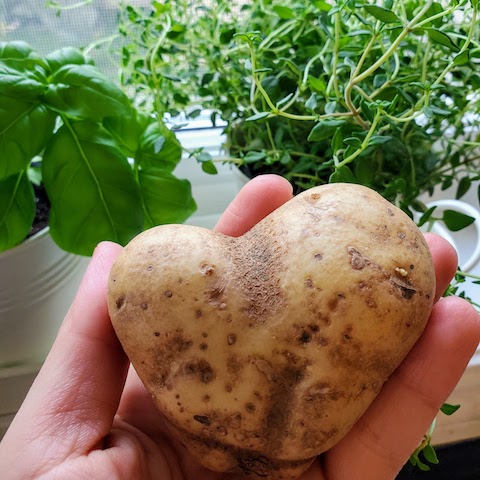Let’s talk about the relationship we have with food. Something not talked about as much as it should be. This topic is an on-going journey for me and what I’ve learned so far solidifies that the why and how we eat are just as important to a healthy diet as nutritional food choices.
A healthy diet goes beyond food. It is how we interact with our body, mind and spirit. How do we nourish our body, what goes on in our head and which emotions govern our soul?
Often, people in our society rely on diet culture to navigate through living a healthful lifestyle. Diet culture is the belief in following rigid rules for dieting and achieving / maintaining an ideal body size. Ultimately they are told what to eat, what not to eat, what times to eat, how much to eat, along with other recommendations to adopt. This is not a healthy relationship with food.
Worry, stress, guilt or shame over eating food and how it relates to our bodies can have serious repercussions. Anorexia and Bulimia are severe conditions that grow from a fear of food and weight gain. Emotional eaters tie feelings to food and typically binge on junk foods that they expect to provide comfort. Orthorexic people fixate on only consuming “pure” and “clean” foods, obsessing over the perfect diet.
Positively interacting with food is key in establishing healthy habits through appreciation and self-love. A healthy relationship with food has balance between eating for hunger and eating for pleasure. It is eating freely and with delight.
How do you relate to food?
Ask yourself these questions to reflect on your relationship with food:

- Do you eat balanced meals?
- Are all foods welcome on your plate (other than allergies)?
- Are any foods restricted from your diet (other than those medically advised to stay away from)?
- Do you feel guilt or shame after eating specific foods?
- Does eating or planning what to eat cause you stress?
- Do you follow any diets?
- Do you enjoy your eating experience?
- Are the times in which you eat strictly regulated?
- Do you use your body’s innate ability to follow hunger and fullness cues?
- Are you satisfied with single size portions?
- Do you tend to over-eat until you feel really full?
- Is skipping meals something you do often?
- Do you have a habit of waiting until you’re extremely hungry before eating?
- Do you eat mindfully (focused on the food you are eating and free from distractions)?
Keep in mind occasionally falling off on any of these points is completely normal. The concern is when falling off on these points becomes habitual in our daily life.
Improving our relationship with food starts with how we view food. It is not a burden or the enemy. It is meant to be enjoyed and savoured.
Create a Healthy Relationship with Food
Let’s look at ways to practise a healthy eating experience:
- Express self-love by consuming everything in moderation.
- Only restrict foods from your diet if medically advised to do so.
- Eat balanced and nourishing meals.

- Learn to enjoy what you want, when you want without feelings of worry or shame.
- Use healthy snacks like fruits, nuts and cheeses to hold off hunger in between meals.
- Indulge in a treat on a satiated stomach to prevent over-eating.
- Eat when you start to feel hungry and stop when you start to feel full. Do not ignore the signs of hunger and fullness.
- Savour food and eat thoughtfully by avoiding distractions and centering your attention on the meal (its taste, texture, flavors and the overall sensation it prompts).
